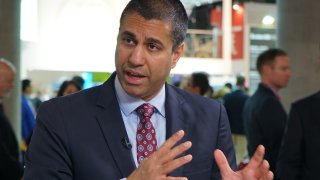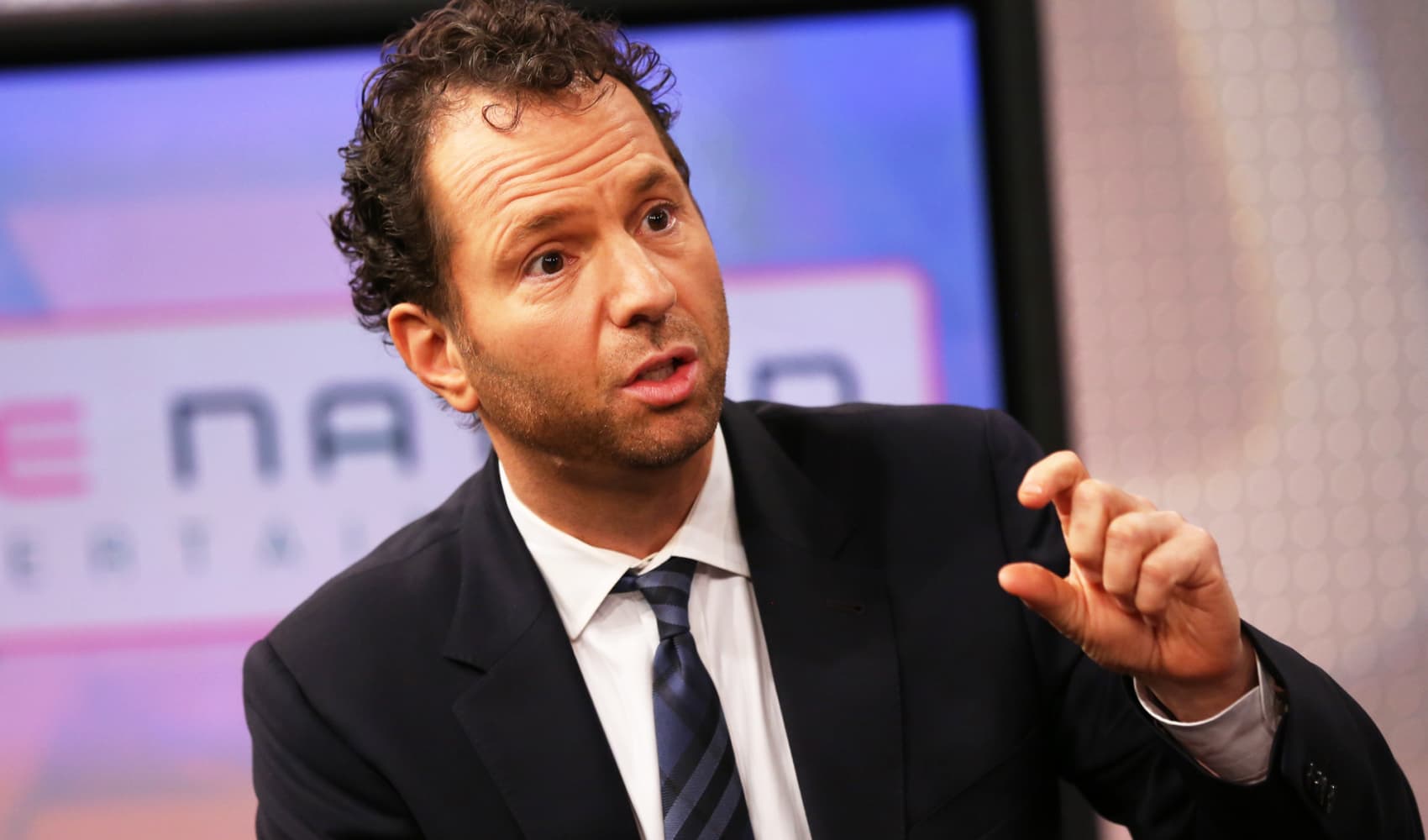
- Federal Communications Commission Chairman Ajit Pai will step down from his post on Jan. 20, the day President-elect Joe Biden is inaugurated, he announced Monday.
- The announcement means that the FCC could reach a Democratic majority sooner than it would otherwise be able to.
- Pai's decision to step down could have significant implications on net neutrality, an issue that helped define his term as chairman.
Federal Communications Commission Chairman Ajit Pai will step down from his post on Jan. 20, the day President-elect Joe Biden is inaugurated, he announced Monday.
The announcement means that the FCC could reach a Democratic majority sooner than it would otherwise be able to. Pai's term was slated to expire in June 2021, though Biden will be able to choose a Democrat to chair the commission once in office. Commissioners must be confirmed by the Senate.
"It has been the honor of a lifetime to serve at the Federal Communications Commission, including as Chairman of the FCC over the past four years," Pai said in a statement. "I am grateful to President Trump for giving me the opportunity to lead the agency in 2017, to President Obama for appointing me as a Commissioner in 2012, and to Senate Majority Leader McConnell and the Senate for twice confirming me. To be the first Asian-American to chair the FCC has been a particular privilege. As I often say: only in America."
Pai's decision to step down could have significant implications on net neutrality, an issue that helped define his term as chairman. In 2017, Pai voted with his fellow Republican commissioners to remove rules that prohibited internet providers from blocking or slowing traffic to particular sites and offering higher speed "lanes" at higher prices. Many major internet providers have not yet taken advantage of that rule change, however.
Net neutrality advocates cheered Pai's departure online.
"Pai's departure cannot come soon enough," Evan Greer, deputy director of activist group Fight for the Future said in a statement. "We are in the middle of a crushing pandemic. Hundreds of millions of people are working from home and sending their kids to school online. Comcast just announced plans to re-impose arbitrary data caps. Kids are sitting outside Taco Bell to do their homework. We desperately need a functional FCC that will quickly repair the damage done by Ajit Pai and get to work protecting the public from ISP abuses."
Money Report
Pai had recently said that the FCC could move forward with rule-making around President Donald Trump's executive order targeting social media companies. He said the commission's general counsel determined it had legal authority to interpret Section 230 of the Communications Decency Act, the law that shields tech platforms from being held liable for their users' posts (and for removing those posts or reducing their reach). Pai's departure makes it much less likely that significant action on the executive order will take place anytime soon, given that the two Democratic commissioners opposed Pai's decision.
The five-person commission can have no more than three commissioners from one party at any given time under the law. The president can appoint a chair of the commission from outside the agency or select one of the existing commissioners, such as Democratic Commissioners Jessica Rosenworcel and Geoffrey Starks.
Republican Commissioner Brendan Carr still has several years on his term, but the other two seats are now up in the air. Trump revoked his nomination of Republican Mike O'Rielly to serve another term in August after he expressed reservation about the FCC's authority around the executive order targeting Section 230. Trump's new nominee, Nathan Simington, testified before the Senate earlier this month, but with the session drawing to a close, his nomination could take a while to come to a vote.
Sen. Richard Blumenthal, D-Conn., said at the hearing he would block Simington's nomination unless he agreed to recuse himself from Section 230-related regulations. Simington, a Commerce Department official, acknowledged he played a "minor role" in drafting the petition instructing the FCC to reinterpret the statute under Trump's order.
WATCH: FCC Chair Ajit Pai on digital privacy, Net Neutrality, the future of 5G






